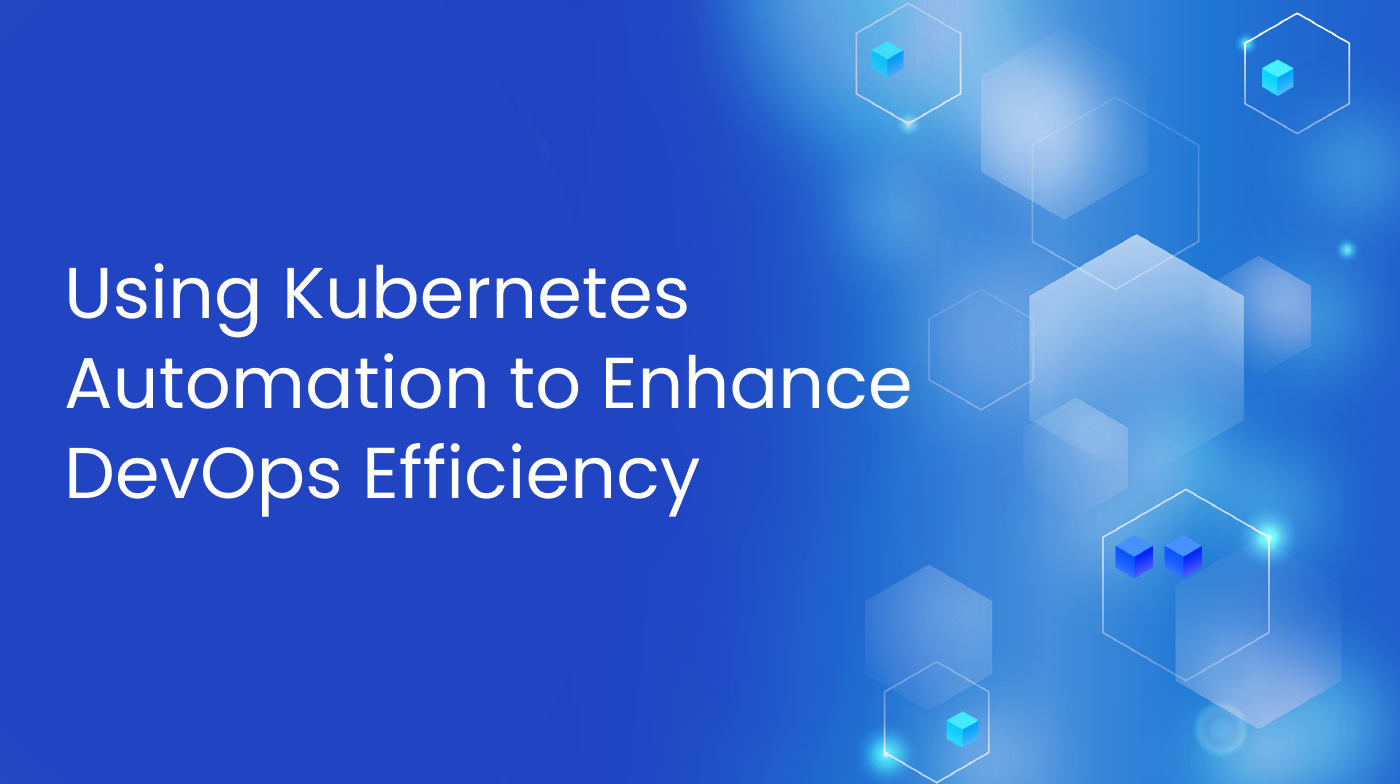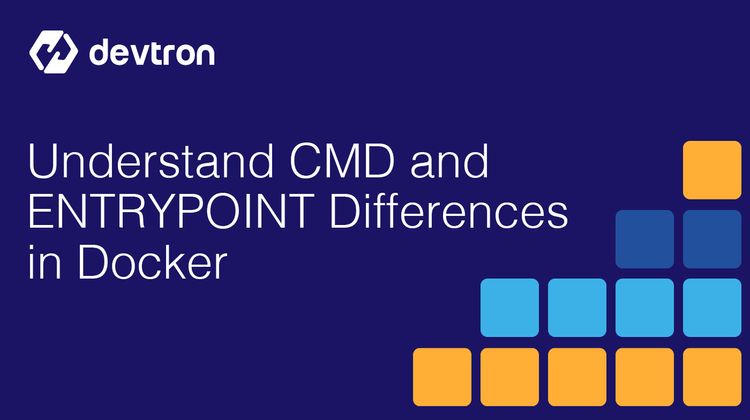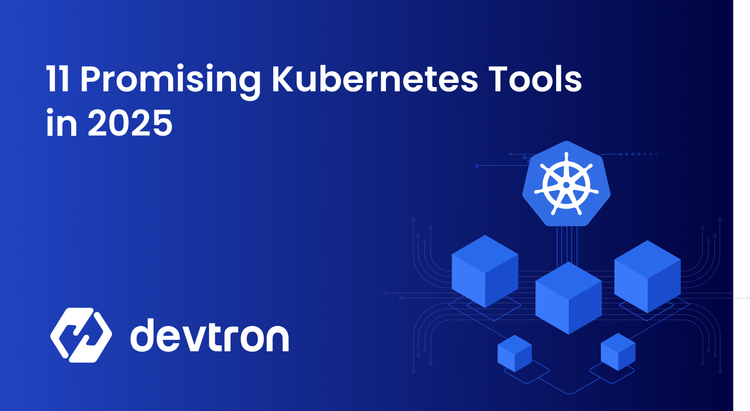Managing Kubernetes clusters efficiently can be a formidable challenge, often involving intricate configurations, lots of kubectl commands, and scaling complexities. In this article, we will delve into the world of Kubernetes automation strategies, exploring ways to streamline operations and enhance productivity. Our goal is to provide you with actionable insights that will empower your organization to harness the full potential of Kubernetes while simplifying the management of your clusters.
The Need for Kubernetes Automation
Kubernetes has gained prominence as the primary platform for modern application deployment in recent years. Its widespread adoption stems from its ability to orchestrate containerized workloads seamlessly, offering scalability and agility. However, this rapid growth in Kubernetes usage has brought forth a new set of challenges.
Manual management of Kubernetes clusters (via kubectl) can be a formidable task. As applications become more complex and dynamic, so do the configurations and scaling requirements. Keeping up with these demands manually is not only time-consuming but also prone to errors.
Key Strategies for Kubernetes Automation
Automation presents a compelling solution to these challenges. By automating various aspects of Kubernetes management, organizations can streamline operations, reduce human errors, and ensure consistent deployments.
CI/CD Pipelines for Kubernetes Automation
In the context of Kubernetes automation, continuous integration and continuous delivery (CI/CD) pipelines play a fundamental role in managing application deployments. These pipelines automate the process of building, testing, and deploying code changes (the software delivery lifecycle) within Kubernetes clusters.
By integrating CI/CD workflows, organizations can achieve faster and more consistent delivery of new features and updates to their applications. This automation is particularly important in microservices and containerized application ecosystems, where speed and efficiency are key.
CI/CD automation not only speeds up deployment but also ensures that best practices, coding standards, and consistency are maintained. Developers can concentrate on writing code while the automated pipeline handles the intricate details of deploying applications.
Scalability and Auto-Scaling Strategies
Effectively handling the scalability of Kubernetes clusters is a significant aspect of automation. Manually adjusting resources to accommodate varying workloads can be labor-intensive and prone to errors. Automation strategies are employed to automatically scale cluster resources in response to demand.
Auto-scaling, a central element of Kubernetes automation, enables clusters to dynamically allocate or release nodes and resources based on predefined rules. This guarantees that applications consistently perform well, regardless of workload fluctuations.
Automation ensures that the desired state of scalability is maintained, regardless of whether organizations run their Kubernetes clusters on public cloud infrastructure like AWS or Azure, on-premises data centers, or hybrid setups. Automation optimizes resource utilization and simplifies cluster management.
Declarative Configuration Management
Declarative config management is the foundation of consistent and automated Kubernetes deployments. It allows organizations to define how they want their applications and infrastructure to operate, using automation to enforce those definitions.
Automation ensures that configurations for Kubernetes resources, such as pods and services, are clearly defined in version-controlled files. Declarative configuration files specify how applications should run, simplifying the replication and scaling of workloads across clusters.
Through the use of repositories and automation tools, organizations can efficiently handle configuration changes, rollbacks, and updates. This not only enhances consistency but also simplifies the management of applications within Kubernetes.
Automated Observability and Metrics Collection
In the world of Kubernetes automation, observability plays a critical role in maintaining cluster health. Automation tools facilitate the collection of metrics, logs, and monitoring data, offering valuable insights into the performance and status of applications running in Kubernetes clusters.
Automation streamlines the setup of monitoring and observability tools, making it easier to detect issues, troubleshoot, and optimize performance. Metrics are collected automatically, allowing organizations to respond proactively to anomalies and performance bottlenecks.
By automating observability, organizations gain better visibility into how their workloads behave, making it simpler to ensure that desired functionality is maintained. This increased insight simplifies troubleshooting and supports the overall reliability of Kubernetes-based applications.
Introducing Devtron as a Kubernetes Automation Solution
Devtron is a tool that helps streamline and enhance the entire process. It provides a unified solution for the optimization of Kubernetes clusters, nodes, and workloads, regardless of your operating environment, whether it's in a public cloud, on-premises, or a hybrid setup.
Devtron's Key Features and Advantages
While Devtron is not a code management system like Github, it brings a wealth of capabilities to the table, making it an invaluable asset for modern IT operations. This open-source tool simplifies DevOps practices and microservices management, seamlessly aligning with the core aspects of Kubernetes automation.
With Devtron, you can automate provisioning, orchestration, and the deployment of containerized workloads. It offers robust monitoring features for microservices and Kubernetes clusters via Prometheus and Grafana, delivering metrics for better visibility. Devtron optimizes workflows by automating various tasks, from provisioning resources to managing configurations.
Devtron’s Automation Strategies
As organizations seek to enhance their Kubernetes automation, Devtron serves as a practical tool to help achieve these objectives.
Devtron simplifies the creation of CI/CD pipelines, automating code changes, containerization, and deployments within Kubernetes clusters. Deployments are flexible, offing both Helm based deployments in addition to Gitops. Its scalability features facilitate auto-scaling based on predefined rules, ensuring efficient resource allocation. Declarative configuration management becomes straightforward with Devtron, promoting consistency and version control. Additionally, Devtron's observability and metrics collection features offer enhanced insights for improved application performance.
Devtron simplifies Kubernetes operations, offering compatibility with various Kubernetes services and native support for container orchestration platforms like Azure Kubernetes Service (AKS) and Red Hat OpenShift. By incorporating Devtron into your Kubernetes automation strategy, you can effortlessly maintain the desired functionality state, optimize resources, and streamline deployment through Terraform integration and GitOps principles.
Devtron includes fine-grained access control, simplifying permissions management for secure deployments. It seamlessly integrates with many DevOps tools (as plugins) for additional automation capabilities and automates ingress management. Whether you're dealing with container images (usually Docker images), dependencies, Kubernetes API interactions, or scaling resources efficiently, Devtron simplifies these tasks, ensuring consistency, reliability, and efficient Kubernetes automation.
Automate Your Kubernetes Today
By embracing automation and optimizing your Kubernetes deployments, you can ensure your organization thrives in this dynamic IT landscape. As you explore the world of Kubernetes automation, consider integrating Devtron into your toolkit.







